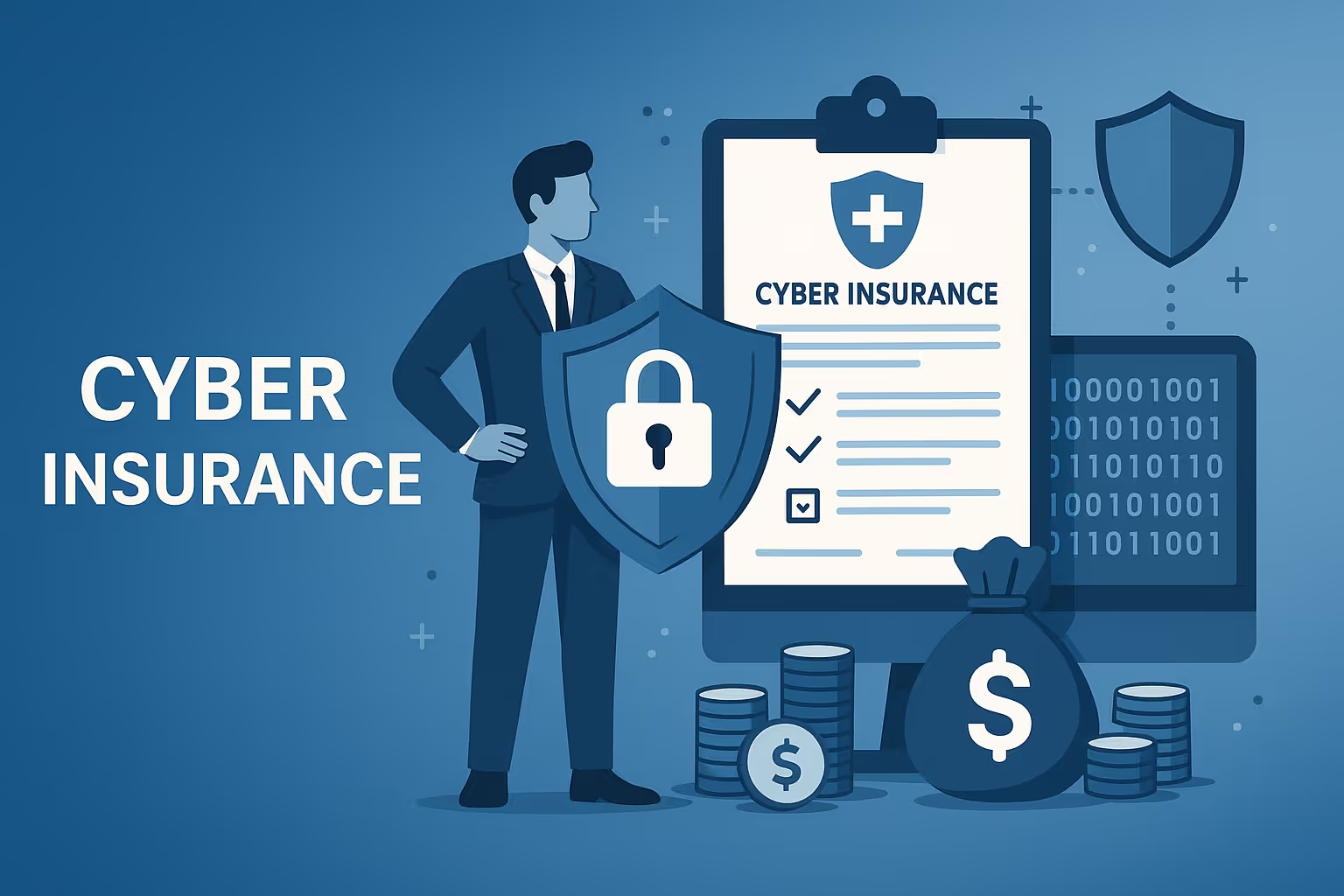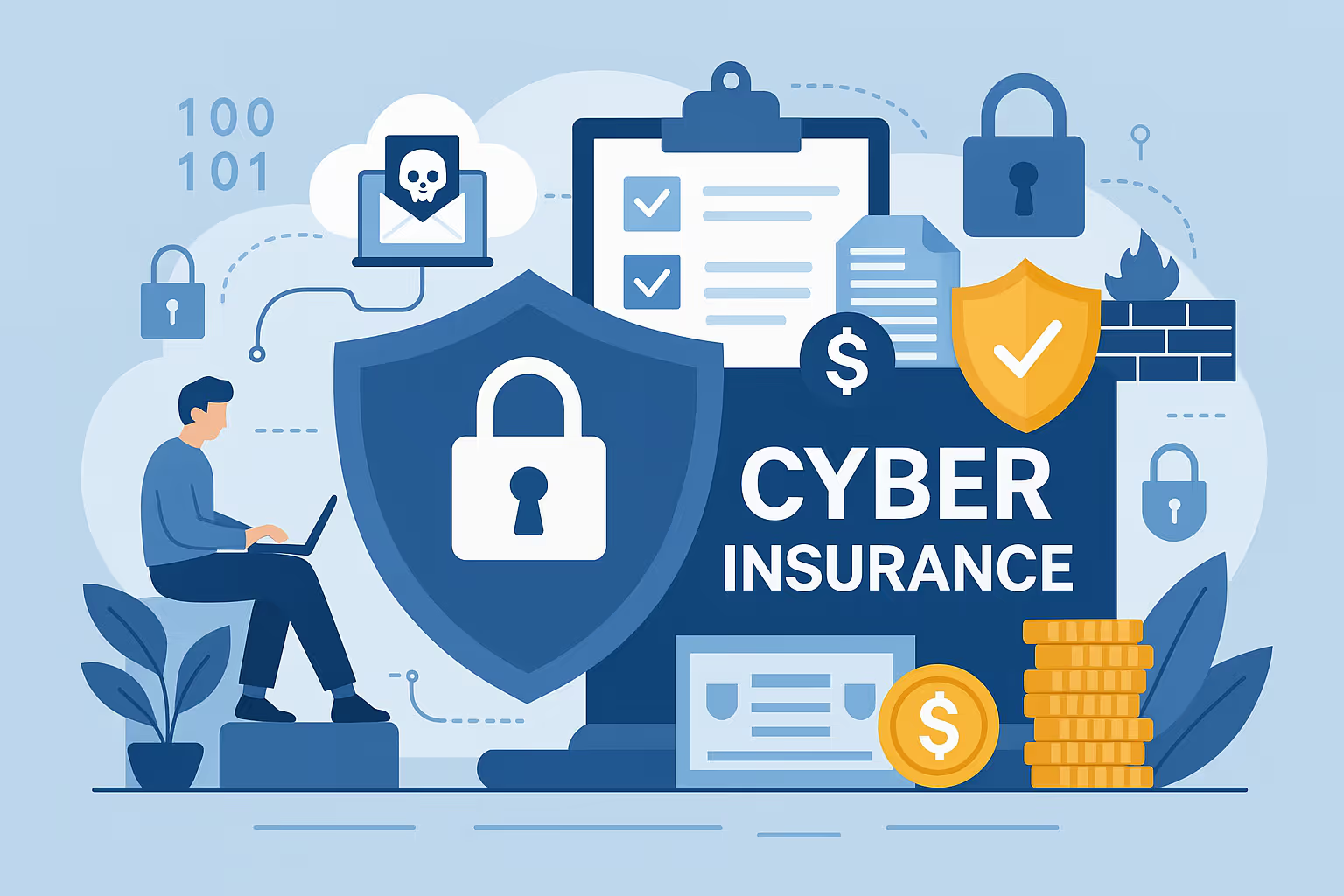
How to get...
By following these steps, you will understand how to get cyber insurance for Retail / E-Commerce in the United States. This step-by-step process ensures you secure tailored, adequate coverage while also demonstrating your commitment to robust cybersecurity practices to insurers.

Who provides...
Organizations evaluating providers should look for strong incident response capabilities, a proven track record of flexible claims handling, and proactive cyber risk management support. In addition, a comprehensive review of policy limits, exclusions, and any additional services—such as cybersecurity consulting or risk assessment tools—will help tailor a solution that minimizes downtime and financial losses in the event of a cyber incident.


Why need...
The potential consequences of these incidents include massive financial losses, legal liabilities, costly remediation efforts, and a significant blow to a company’s reputation. Cyber insurance for Retail / E-Commerce provides financial coverage, resources for incident response, and legal support to mitigate these impacts. It helps businesses quickly recover from cyber events, maintain customer confidence, and continue operations with minimal downtime.
Build Security with OCD Tech That Meets the Standard — and Moves You Forward
Contact Us
U.S. retail e-commerce firms must secure customer data. Insurers assess cyber defenses and risks. Meeting standards eases claims.
Insurers expect clear and updated documentation of your cybersecurity policies, procedures, and risk management frameworks. This includes policies on data handling, network security, and incident response. Meeting these cyber insurance requirements for Retail / E-Commerce signals that your organization understands its threat landscape, which ultimately influences coverage approval and premium costs.
Insurers require evidence of implemented technical controls such as firewalls, encryption, intrusion detection systems, and regular vulnerability assessments. These technical measures reduce the risk of data breaches, a key concern for the Retail / E-Commerce sector.
Documentation proving adherence to federal and state data privacy regulations (like the CCPA) and industry standards (e.g., PCI DSS) is crucial. Insurers focus on regulatory compliance as it minimizes legal exposure and enhances overall security posture.
An up-to-date incident response plan, along with documented past security incidents and resolutions, is required. This shows insurers that your organization can quickly identify and mitigate breaches, a vital factor in assessing ongoing risk.
Evidence of regular cybersecurity training for employees and robust security assessments for third-party vendors is essential. In Retail / E-Commerce, human error and supply chain vulnerabilities are common attack vectors.
Retailers and e-commerce companies must provide evidence of compliance with regulations such as PCI-DSS for payment card security, HIPAA where applicable, and state-specific data protection laws. This documentation is crucial because insurers assess the legal and financial risks associated with non-compliance. Meeting these cyber insurance requirements for Retail / E-Commerce helps maintain favorable coverage terms and premium rates.
Documented incident response plans and business continuity strategies are essential. Insurers examine these plans to verify that companies can quickly detect, respond, and recover from cyber incidents. A well-articulated plan reduces potential downtime and financial losses, which is a key consideration in cyber insurance requirements for Retail / E-Commerce and may lead to competitive premium offerings.
Regular training programs that educate staff on phishing, social engineering, and safe data practices are a must. Insurers view effective employee training as a line of defense against cyber threats. Demonstrating comprehensive training ensures adherence to cyber insurance requirements for Retail / E-Commerce, often resulting in reduced risk assessments and lower insurance costs.
Insurers request detailed records of past cyber incidents, including data breach reports and risk assessments. This historical data provides insights into a company’s security posture and incident management capabilities. Clear documentation aligned with cyber insurance requirements for Retail / E-Commerce allows insurers to quantify risk accurately, influencing both the eligibility for coverage and the premium rates offered.
Secure Your Business with Expert Cybersecurity & Compliance Today
Contact Us


Differences by State...
In the United States, state-specific regulations greatly influence cyber insurance for Retail / E-Commerce. Different states mandate various compliance measures, risk management practices, and coverage requirements that organizations must meet when purchasing policies. For example, New York, California, and Texas each have unique regulatory frameworks that shape how businesses assess and maintain their cyber insurance policies.
New York is widely recognized for its rigorous standards in cybersecurity and privacy. The state enforces strict requirements for data protection, notably impacting breach notification procedures and cyber risk assessments. For Retail / E-Commerce companies:
California’s high-profile privacy laws, like the California Consumer Privacy Act (CCPA), influence how cyber insurance policies are structured for Retail / E-Commerce companies.
Texas represents a more moderate regulatory environment compared to New York and California but still presents essential differences.
Each state’s unique requirements affect how organizations evaluate, purchase, and maintain their cyber insurance policies. Retail / E-Commerce companies should closely review coverage details, ensuring policies address both the operational risks and regulatory challenges they face in their specific state. This targeted approach not only enhances compliance but also optimizes their ability to manage cyber threats effectively.

Compliance & Frameworks...
For organizations in the United States’ Retail / E-Commerce sector, having robust cybersecurity practices is essential. NIST Cybersecurity Framework (CSF) and ISO 27001 are two of the primary frameworks used by insurers and underwriters to assess cybersecurity posture. These frameworks help companies structure their risk management strategies, document controls, and implement best practices. In the context of cyber insurance for Retail / E-Commerce, adherence to these frameworks typically leads to better eligibility and lower premium costs. They provide a unified language for identifying and mitigating risks and play a crucial role during underwriting evaluations.
While sector-specific compliance provides general governance, several regulations target data protection in industries intersecting with Retail / E-Commerce. HIPAA applies if health-related data is processed, such as with pharmacy sections or wellness services on e-commerce platforms. For companies handling sensitive financial information, GLBA requirements become important. These regulations ensure that data privacy and security measures meet legal thresholds, and demonstrating compliance can reduce potential vulnerabilities. Insurance underwriters consider adherence to these laws essential—non-compliance may result in increased premiums or even disqualification from coverage.
At the state level, mandates such as CCPA in California and NYDFS in New York also influence cyber insurance policies. CCPA emphasizes consumer data privacy and mandates strict protocols around data access, storage, and breach notification. NYDFS requires rigorous cybersecurity measures and regular third-party assessments for financial service providers, often including e-commerce platforms that facilitate payments or other financial transactions. These state-specific requirements not only shape a company’s cybersecurity strategies but also inform insurers about a firm’s risk management maturity, impacting underwriting criteria and premium rates.

Audit. Security. Assurance.
IT Audit | Cybersecurity | IT Assurance | IT Security Consultants – OCD Tech is a technology consulting firm serving the IT security and consulting needs of businesses in Boston (MA), Braintree (MA) and across New England. We primarily serve Fortune 500 companies including auto dealers, financial institutions, higher education, government contractors, and not-for-profit organizations with SOC 2 reporting, CMMC readiness, IT Security Audits, Penetration Testing and Vulnerability Assessments. We also provide dark web monitoring, DFARS compliance, and IT general controls review.
Contact Info
.svg)
OCD Tech
.svg)
25 BHOP, Suite 407, Braintree MA, 02184
.svg)
844-623-8324
.svg)
https://ocd-tech.com
Follow Us
Videos
Check Out the Latest Videos From OCD Tech!
Services
SOC Reporting Services
– SOC 2 ® Readiness Assessment
– SOC 2 ®
– SOC 3 ®
– SOC for Cybersecurity ®
IT Advisory Services
– IT Vulnerability Assessment
– Penetration Testing
– Privileged Access Management
– Social Engineering
– WISP
– General IT Controls Review
IT Government Compliance Services
– CMMC
– DFARS Compliance
– FTC Safeguards vCISO